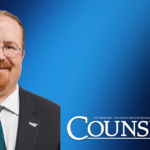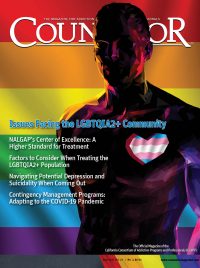Share
As a child, I was told that words could not hurt. I remember repeating the old adage, “Sticks and stones may break my bones, but words can never hurt me.” The reality is that words have power; they can heal or they can do harm. When people use words like “addict,” “alcoholic,” and “substance abuser,” they are perpetuating a negative connotation of a life-threatening medical condition. Worse yet, those who stay silent while movies, social media, and casual conversations make jokes about people being “junkies,” “meth heads,” “burnouts,” or “druggies” are collectively condoning behaviors that include the discrimination, alienation, and stigmatization of people who need treatment or are in recovery.
Perpetuating negative perceptions of people who have addiction—whether or not they are in remission—has consequences. It affects employment prospects, adequate consideration from health care providers, choices in where they may decide to live, and even whether they may live to see another day. Let us consider housing, for example. Negative images of people with addiction cause unease in neighbors and communities who say, “We don’t want ‘those people’ living in our neighborhoods.” From perception and negative speech comes actual discrimination, as evidenced by numerous housing ordinances drafted and passed to keep communities “safe” from “those people.”
In California alone, there are over a dozen city and county ordinances that strip people in recovery from their rights to share housing in a neighborhood of their choosing. Throughout the nation, cities and counties are making laws to push people in recovery out of certain neighborhoods and communities. Some cities demand that people in recovery are not to be a part of their communities, dictating that they cannot live together with others in recovery and must be eight hundred feet from other recovery residences, short-term rentals (e.g., Airbnb), or senior living facilities. Is it really okay to push people in recovery out of neighborhoods in 2021? Individuals in recovery have the right to live where they want to and not be thrown out of communities or neighborhoods because they have a disease. It is sad to think this is happening during an epidemic within a pandemic.
This manifestation of discrimination against people who have overcome a debilitating disease and are assets to society is deplorable. Not only do these ordinances restrict where people can live, they now also prohibit residents from even speaking to individuals who have relapsed, which is stripping them of their First Amendment rights. Privacy is also violated by cities that force people living in recovery to share employment records, criminal background records, and meeting attendance records with “the government.” If this were asked of any other class of people, there would be an immediate opposing response from policymakers and courts, yet the battle to end these abuses rages on.
At a time when deaths are on the rise from overdoses during the pandemic, why do we have communities saying they do not want people in recovery living in their backyards? While a large percentage of people without housing are also experiencing substance use disorders, cities are simultaneously pushing people in recovery to be homeless and then claiming that eliminating homelessness is a high priority. This is the height of hypocrisy. It is unacceptable, and we as a society can do better.
As individual advocates, we can use our words to encourage societal change every day. Words like “in long-term recovery,” “survivor of addiction,” and “sustained recovery” make a difference. Over the course of the pandemic and the civil unrest of the summer, diversity and inclusion issues have been at the forefront of the United States’ collective conscience. When will the injustices done to a nation of recovering people be scrutinized? When will our voices join the journey of other peoples’ voices who have fought to end deep-seated biases and outright discrimination against them? When will we say, “Enough is enough”?
Pete Nielsen is the President and Chief Executive Officer for the California Consortium of Addiction Programs and Professionals (CCAPP), CCAPP Credentialing, CCAPP Education Institute and the Behavioral Health Association of Providers (BHAP), and Publisher of Counselor Magazine
CCAPP is the largest statewide consortium of addiction programs and professionals, and the only one representing all modalities of substance use disorder treatment programs. BHAP is the leading and unifying voice of addiction-focused treatment programs nationally.
Mr. Nielsen has worked in the substance use disorders field for 20 years. In addition to association management, he brings to the table experience as an interventionist, family recovery specialist, counselor, administrator, and educator, with positions including campus director, academic dean, and instructor.
Mr. Nielsen is the secretary of the International Certification and Reciprocity Consortium, and the publisher for Counselor magazine. He is a nationally known speaker and writer published in numerous industry-specific magazines. Mr. Nielsen holds a Master of Arts in counseling psychology and a Bachelor of Science in business management.











 Counselor Magazine is the official publication of the California Association of Addiction Programs and Professionals (CCAPP). Counselor offers online continuing education, article archives, subscription deals, and article submission guidelines. It has been serving the addiction field for more than thirty years.
Counselor Magazine is the official publication of the California Association of Addiction Programs and Professionals (CCAPP). Counselor offers online continuing education, article archives, subscription deals, and article submission guidelines. It has been serving the addiction field for more than thirty years.